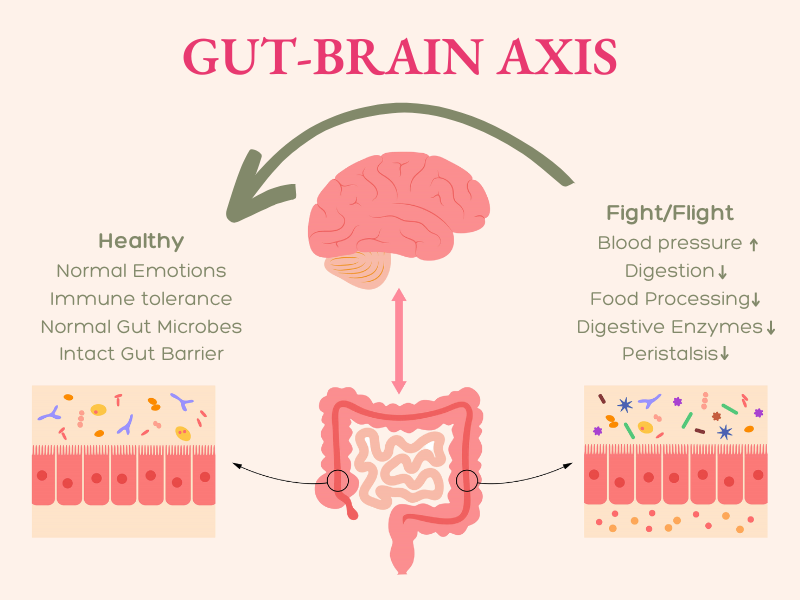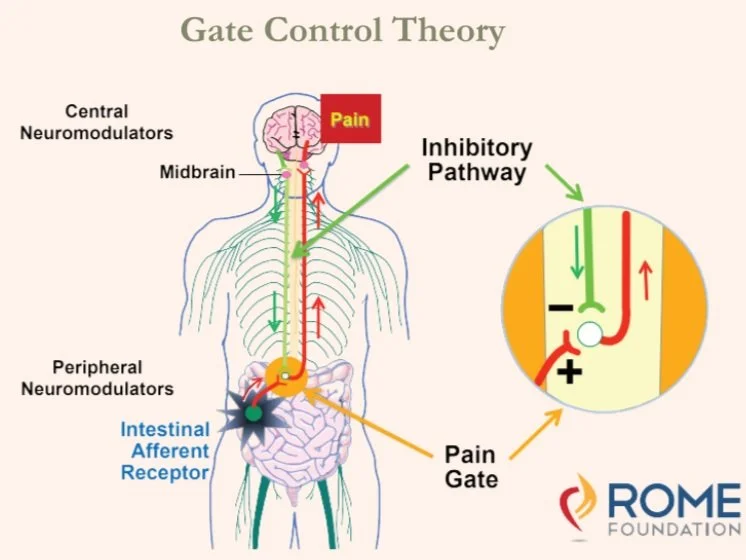
Gut Directed Hypnotherapy
What is Gut Directed Hypnotherapy
Gut Directed Hypnotherapy(GDH) is a hypnotherapeutic treatment specifically designed to treat the symptoms of IBS. It has emerged as one of the most effective treatments for IBS. It uses a framework developed by IBS Specialist Professor PJ Whorwell, Consultant Gastroenterologist at the University Hospital of South Manchester, who has extensively researched the effects of hypnotherapy on IBS and functional gut disorders.
History of Gut Directed Hypnotherapy
In the early 1980′s, Prof Peter Whorwell, Consultant Gastroenterologist at the University Hospital of South Manchester, was finding that conventional medical treatment was not helping his patients with IBS. At the time, he had an interest in hypnotherapy and decided to apply it to help his patients relax more. The encouraging results prompted him to undertake research trials to confirm his findings. The initial results demonstrated a 70% improvement in reducing IBS patients’ symptoms. This led to research publications and further studies exploring colonic and non-colonic symptoms, quality of life, and anxiety and depression. He found that not only does hypnotherapy improve colonic symptoms, but also improves associated anxiety and depression and overall quality of life. These improvements were followed for five years and found to be maintained at approximately the same level on completion of the treatment.
Why is Hypnosis relevant to IBS?
In hypnosis, we are primarily communicating with the subconscious mind. We are reprogramming it, and modifying its thinking in order to get new information, and new modes of thinking and acting into the automatic pilot.
IBS represents an automated reaction to external stress that has got out of order. On a subconscious level, the mind is interpreting stress as being a life-or-death threat and is triggering the entire flight or fight process automatically and on a subconscious level.
Effect of the Flight, Fight Response on the Gut
When our minds perceive some stress as life-threatening, they trigger the release of adrenaline and other stress hormones to prepare the body for either fighting or running away.
First, the flow of blood changes. In a normal, resting state, our brains and gut are using at least three-quarters of our blood flow and oxygen.
In a flight or fight state, blood pressure and heart rate go up so that more blood can be pumped to the muscles.
The adrenaline and stress hormone flow causes the gut to stop functioning.
Pain that begins in the gut ascends the spinal cord, where it is experienced in the cortex area of the brain. Chronic GI pain results from dysregulation of this brain-gut pathway. It can occur by increased signaling from the GI tract due to hypersensitivity and also a failure of the brain to sufficiently block or downregulate the ascending signal in the spinal cord.
The gate control theory of pain relates to the brain’s ability to block the ascending signal from the spinal cord going to the brain, thereby reducing the experience of the pain. Hypnotherapy can help reset this dysregulated system and reduce pain.
If the body is in a life-threatening situation, digestion and processing of food are far less important than immediate survival.
The stomach simply stops mashing food. It stops producing and releasing digestive enzymes. It stops moving food into the small intestine. The small intestine, which is only getting enough blood flow to stay alive, largely stops absorbing nutrients. The wavelike, pulsing, and squeezing action of the intestines, called peristalsis, which pushes food through the system, slows way down or even stops almost entirely.
The large intestine can stop pushing waste along, resulting in constipation. In severe crisis mode, the large intestine will simply dump everything as diarrhoea. Food that is not being digested can ferment, resulting in bloating and gas. And slowed digestion, over the long run, can lead to serious imbalances in normal gut flora… further contributing to gas, and bloating pain.
Pain and IBS
The second major way that the subconscious mind is relevant to IBS has to do with the way pain is processed. Pain does not occur where we feel it. All that happens when we feel pain is that nerve signals are sent to the brain in response to some stimulus. The brain and mind interpret those nerve signals and decide whether something hurts. If the mind decides that the nerve signals represent pain, then the brain reflects a feeling of pain back down the nervous system to the place we feel the pain. Things don’t hurt unless the brain and mind tell us that they do. If we can change the way the brain and mind interpret the nerve signals, the pain changes. The mental decision that something hurts occurs in the subconscious mind. It is not something the child is consciously causing to happen. But the pain and other symptoms of IBS are things that we can learn to modify consciously by triggering new routines in the subconscious mind.
This video from the Rome Foundation explains very clearly how Pain works.
The Gate Control mechanism for Gastrointestinal Pain (GI)
Hypnosis is important precisely because, in a state of hypnosis, we can access the subconscious mind to a much higher degree than usual, and reprogram the ways in which it perceives stress and pain. If we change the perception of stress, the mind stops pushing the flight or fight button. If we change the interpretation of nerve signals, the mind stops perceiving pain. And that is why hypnosis is effective as a treatment for IBS . By changing the mind, we eliminate the underlying causes of the problem and break the pain-stress-pain spiral.
Please don’t hesitate to reach out if you have any questions or would like to discuss further how I may be able to support you on your journey.
Gut Directed Hypnotherapy Treatment Plan

I deliver GDH through a seven-session program delivered over a 12 weeks period.
Treatment includes
- Clear, comprehensible education about the nature of the gut-brain connection.
- CBT to relieve GI symptoms
- Clinical Hypnotherapy
- Havening Techniques to relieve underlying psychological issues
- Personalised gut-directed hypnotherapy recordings to be listened to on a daily basis for the duration of the treatment and as part of an ongoing maintenance plan. This is an important compliment to treatment success. The aim is to reinforce positive change and teach you self hypnosis skills to use at anytime.
Does it work for everyone?
Both research and clinical experience show that 70-80% of sufferers will benefit from the treatment.
Gut Directed Hypnotherapy has also been studied in children with IBS and these trials show GDH to be highly effective compared to standard care. A 2007 study carried out by the Royal Dutch Hospital for Children in Amsterdam reported that an astounding 96% of children who underwent GDH were significantly improved or symptom free a year after treatment began.
Can the symptoms return post-treatment?
Long term follow up studies show that treatment success is maintained for up to five years. This does not mean it will reappear after 5 years, the study only followed the patients for 5 years. It is not unusual for some patients to relapse only to return for a follow up session or two to re-establish positive outcomes.
Long-term Benefits

According to a study conducted by Prof Whorwell and colleagues, they found:
- 83% of those who had a positive treatment outcome were well after 1-5 years
- 59% were taking no medication
- 42% that were on medication were taking them less often.
- 79% consulted their GP/hospital consultant less often or not at all.
- 49% consulted their GP less often about other symptoms.

